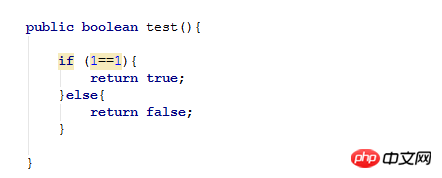This can solve the warning problem, but sometimes because some business codes must be so long, there is nothing you can do if there are warnings. But in most cases, the code is not standardized, and you should check your code carefully (including but not limited to code duplication, variables or methods not being used, poor code writing...)
In addition, you can also make your own set of code verification rules, which can be customized.
To give an example: This code has a yellow warning. It is obviously the right way to write it, but it is actually inelegant and wasteful code.
Warning Generally, I encountered some generics that you didn’t add, and your imported packages were not used, types were not checked, etc. In fact, if you don’t consider performance, program safety and robustness, you can ignore it
This can solve the warning problem, but sometimes because some business codes must be so long, there is nothing you can do if there are warnings. But in most cases, the code is not standardized, and you should check your code carefully (including but not limited to code duplication, variables or methods not being used, poor code writing...)
In addition, you can also make your own set of code verification rules, which can be customized.
To give an example:

This code has a yellow warning. It is obviously the right way to write it, but it is actually inelegant and wasteful code.
After discovering the warning modification:
Warning Generally, I encountered some generics that you didn’t add, and your imported packages were not used, types were not checked, etc. In fact, if you don’t consider performance, program safety and robustness, you can ignore it